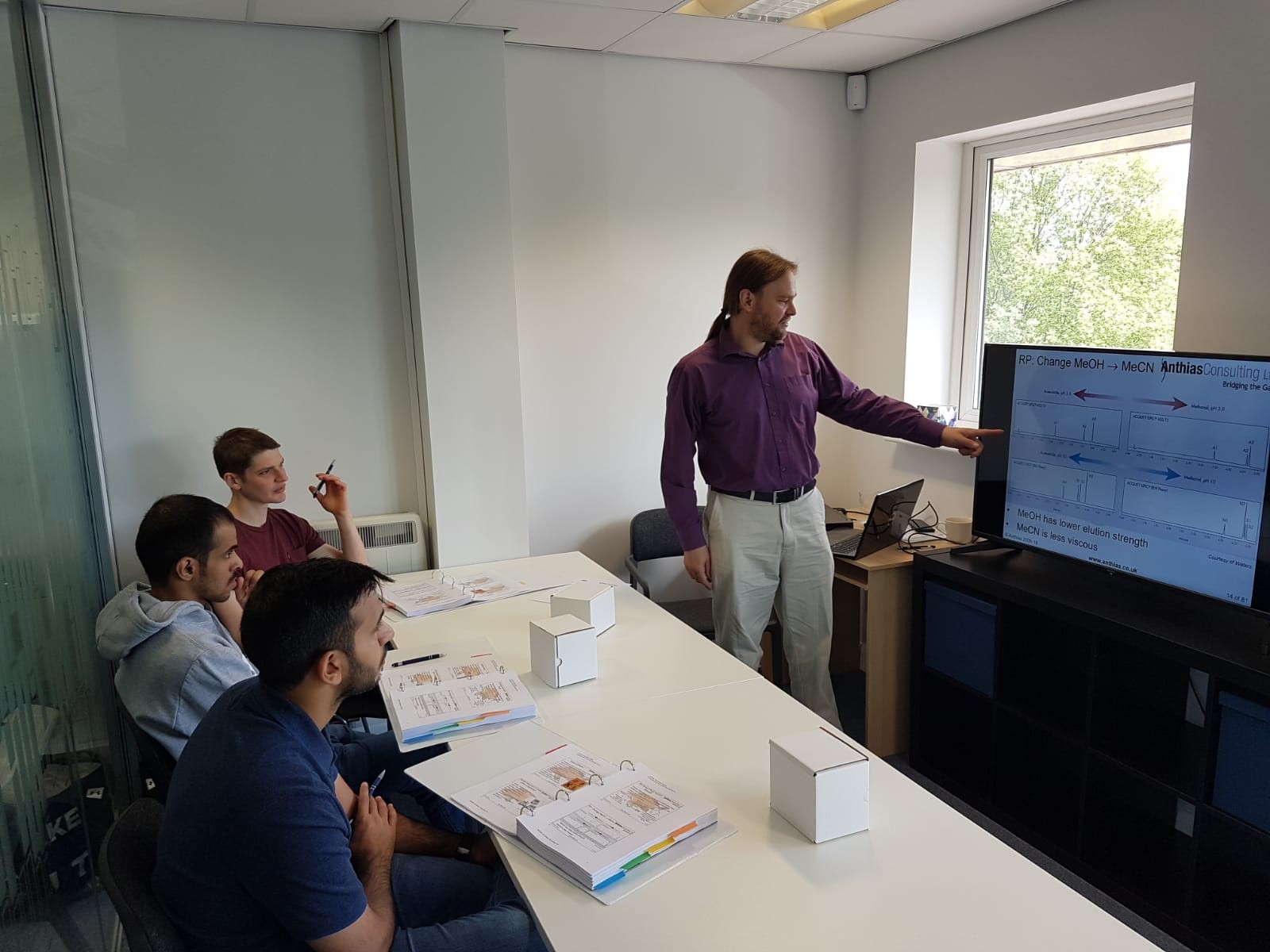Practical Essentials of LC classification and columns

- Duration: 3.50 hours for Virtual Classroom training
- Experience level: Intermediate
- Delivery methods: Offsite training & consultancy | On-Demand | Online | Onsite training & consultancy | Tailored training |
- Type of course: Universal
- Applicable to manufacturer(s): Agilent | Bruker | CTC | PerkinElmer | Sciex | Scion | Shimadzu | Thermo | Waters |
- CPD Approved: Approved
- Scheduled course price: £210.00 + TAX per delegate
- Course discounts: RSC CAMS HEaTED members receive a discount on this course

What will you learn on this course?
Module 4 of the Practical Essentials of LC & LC-MS and the Complete LC & LC-MS courses.
In this module, first the types of LC system classifications are explained. Following this, the analytical columns used in liquid chromatography are covered in detail (stationary phase, particle size etc.) including the various separation mechanisms at play, normal phase, reverse phase and HILIC.
Combine other days or modules.Learning outcomes
- You will learn how to select an appropriate LC column (dimensions and stationary phase) for your application.
Who is this course for?
If you have limited LC experience, wish to learn more or would like to brush-up on your knowledge about this particular section of the instrument then this is the module for you.
Select the courses you are interested in:
Feedback from previous attendees
“Good to show generally what different column chemistries are useful for.” Mollie Nero, Project Scientist, Broughton Nicotine Services (February 2021).
“Learning how the choice of column can affect efficiency, resolution and selectivity was a good subject. Also how it is possible to work out how to choose a better column by looking at spectra will potentially help me out in the future.” Joe Richardson, Assistant Scientist, Environment Agency (November 2020).
“[I enjoyed the] level of detail information presented.”
“Useful discussion. Better material and knowledge of the instructor is helpful.”
“Professional, high quality delivery, keep track on time.”
“The instructor is aware of all the LC-MS spectrometry. I found in this course useful materials.”
“[I enjoyed] developing an understanding of the applications and function of the equipment.”
“The HPLC & LC-MS training was good and I enjoyed it because I have learnt a lot.”

